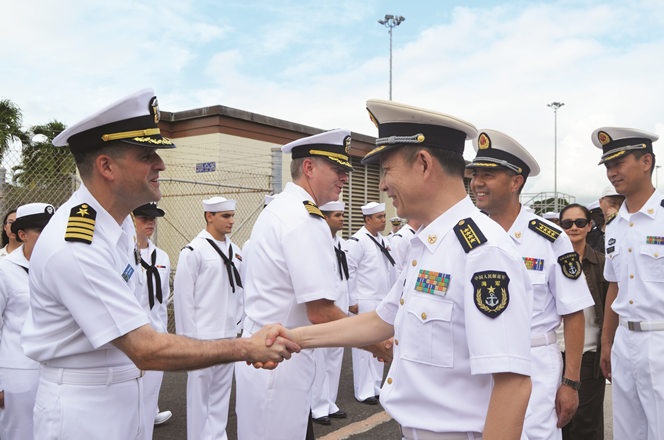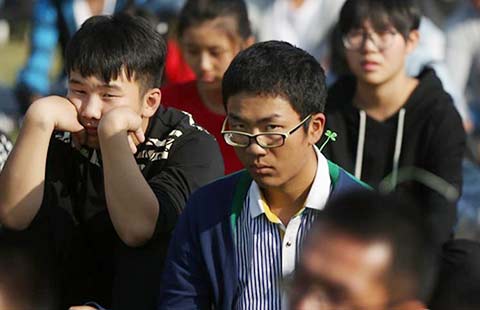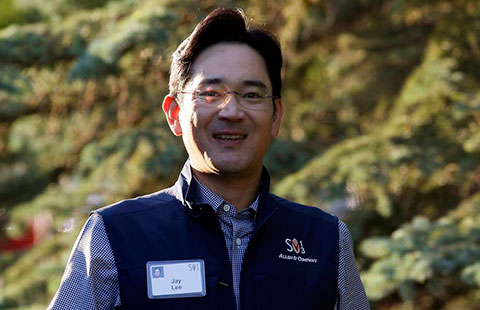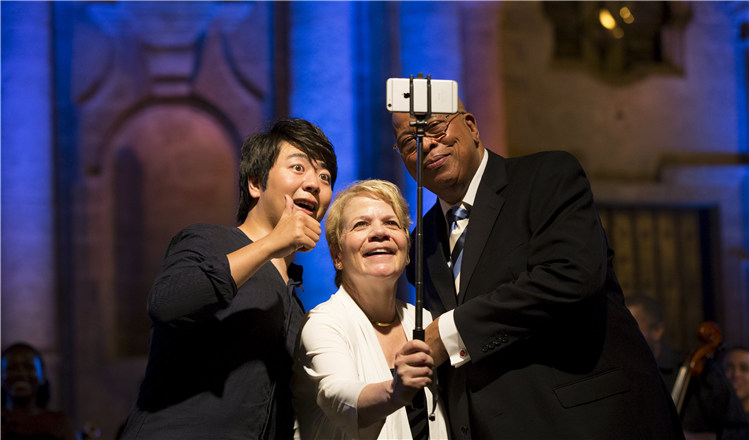Road to recall
Updated: 2015-10-14 07:40
By Andrew Moody(China Daily)
|
||||||||
Oxford scholar Peter Frankopan's new book talks of China's familiarity with globalization since ancient times, Andrew Moody reports.
Peter Frankopan believes we have all been looking at history in the wrong way.
Often only seen from a Western perspective, the accepted story of mankind largely ignores the contribution made by that huge bridge between the West and the East that is now often referred to as the Silk Road.
In his new 636-page book, The Silk Roads, he aims to put that right by showing how the interconnectedness of Europe, the old Ottoman Empire, Central Asia, the Caucasas and all the way to China have for 5,000 years, been the very cradle of civilization.
He argues that history did not begin with the ancient Greeks and Romans, and that European movements such as the Renaissance or the Enlightenment were not actually new but derived from a fusion and exchange of ideas, cultures and religions along what we now see as some old caravan trail.
"We are all brought up in the West being taught this monolithic story which hasn't really changed for 200 years. If you went back to a classroom in 1850 in England you would find much of the same topics being taught. I am not sure what relevance the Battle of Hastings would have to a boy growing up in Shanghai today," Frankopan, director of the Centre for Byzantine Research at Oxford University, says in an interview with China Daily in London.
The 44-year-old historian believes his book's essential theme is globalization, not as a new but very old concept.
"It certainly ain't nothing new. We might think we are living in a new age of exchanges between China and the West but we can go back 2,500 years and find Chinese sources that suggest a world where the exchanges are just as strong."
Franokpan points out the term "silk road" or seidenstrasse, is not as old as what it describes and dates back only to the 19th century when it was used by German geologist Ferdinand von Richthofen, uncle of World War I flying ace, the "Red Baron".
He believes one of its leading modern reincarnations, the Chinese Government's Belt and Road Initiative, accurately sums up what the concept is in reality, myriad maritime and overland links and not one central highway.
"I think to many Western eyes and ears, the concept of the Silk Road is almost like a semi-motorway, a single path that links Venice, through Constantinople (modern Istanbul) and central Asia to China. We also only think of it as going from East to West but, of course, the traffic is in both directions," he says.
"It is also not always about goods and traffic going vast distances from China to the West. Much of the exchanges, in fact, are highly local, trading between towns and villages that are near to each other building up to a sort of long chain."
Frankopan, who was educated at top UK public school Eton, won a prize for the highest first-class history degree at Cambridge, before beginning an academic career that has taken in spells at Harvard and Princeton.
Despite being British, he has something of an exotic background in that he is also a Croatian prince.
"In a bygone age that might have meant something," he says. "I am from a very old family that traces itself back to the Dalmatian coast 700 or 800 years. Nowadays, it closes as many doors as it opens."
Nonetheless it led to him becoming president of the Croatian cricket board and playing for the national team.
"A lot of them have been brought up in Australia and they are bloody good," he says of Croatian cricketers.
His interest in the Eastern world was first inspired by his Russian teacher at Eton, who said you could only understand the language by singing peasant songs, and then went on to teach him Arabic.
"We were introduced to Arabic literature and poetry and had discussions about Islam and contemporary Muslim society," he says.
The book, hugely ambitious in its scope, and which takes the reader from the ancient Persian civilizations to the recent wars in Afghanistan and Iraq, has a compelling narrative and is jam-packed with stories. It contains numerous snippets of information that shed new light on major world events.
The huge Buddha statues you now see in the East did not exist before people traveling up the Silk Road saw such statues in ancient Greece.
One of Hitler's prime motives during his Operation Barbarossa offensive, against Russia in 1941, was to secure food supplies from the wheat fields of Ukraine, making Germany less reliant on Atlantic convoys.
We also learn from Saddam Hussein's own surprisingly meticulous records that he thought the US ambassador to Baghdad, April Glaspie, had given him a green light to invade Kuwait in 1990.
"I was aware that it needed to be readable and not self-indulgent with endless footnotes. As a student I used to read books that you couldn't make head nor tail of. It wasn't because the author was very clever but actually a bad writer," he says.
Frankopan says he had been itching to write such a book that gave a different perspective on world history since he was a PhD student 25 years ago.
"Many academics spend years contemplating and don't write anything at all. This is such an ambitious book, I can't quite believe I have written it. If you ask me why I have done it, I don't really have a very good answer."
Contact the writer at andrewmoody@chinadaily.com.cn
(China Daily 10/14/2015 page20)
Most Viewed
Editor's Picks

|

|

|

|

|

|
Today's Top News
Tu first Chinese to win Nobel Prize in Medicine
Huntsman says Sino-US relationship needs common goals
Xi pledges $2 billion to help developing countries
Young people from US look forward to Xi's state visit: Survey
US to accept more refugees than planned
Li calls on State-owned firms to tap more global markets
Apple's iOS App Store suffers first major attack
Japan enacts new security laws to overturn postwar pacifism
US Weekly

|

|















